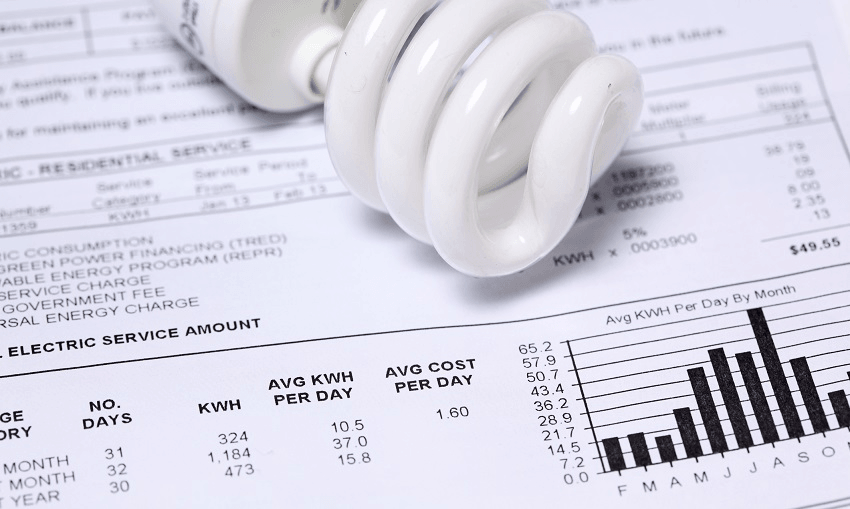Global consumer campaign One Big Switch has arrived on Kiwi shores, hoping to harness the power of the collective to unlock special group discounted energy offers and drive competition in New Zealand’s electricity industry. Jihee Junn talks to the man spearheading its arrival, Saveawatt CEO Tim Rudkin.
Turns out, ovens and stoves aren’t just for cooking meals – they’re for keeping your house warm as well, according to the one in ten New Zealanders who’ve been heating their homes like this over the past few months. Not because they want to, of course, but because there’s just not enough money to spare for heating. It’s a situation that’s reminiscent of a West Auckland family The Spinoff profiled last year who was using a barbecue to keep their garage warm. But then the washing caught on fire and the house burnt down. The family watched the whole thing from the street.
In 2017, consumers missed out on over $372 million worth of energy savings, which is an $82 million increase from what consumers were missing out on the year before. Meanwhile, the government’s retail power price review released earlier this year found that while residential electricity prices have risen by around 50% since 2000, the price for businesses has remained pretty much the same. It’s a similar situation when it comes to revenue for big energy retailers, which has either stagnated or increased despite losing customer share.
When all these things get taken into account – millions in untapped savings, burgeoning residential power bills, desperate measures being taken by the poor – it starts to paint a very bleak picture of how much it costs to power a home in New Zealand. Utilities consultant Tim Rudkin says a large part of this is down to retailers refusing to offer better deals and consumers failing to actively demand them.
“Around 40% of the market has never switched energy providers before, and that market tends to be the one making up a fair chunk of the $370+ million,” says Rudkin. “So apathetic customers are paying a whole lot more than those who might be really active switchers, which is only about 9% of the market. Most customers definitely aren’t getting the best deal that’s available to them.”
Trying to get that best deal is what Saveawatt, the utilities consultancy where Rudkin sits as CEO, has been striving to do for businesses for almost a decade. A huge amount of the feedback Saveawatt has received over the years has been from customers asking if they could do for their homes what they were doing for their businesses, leading Rudkin to bring One Big Switch – the campaign banding thousands of households together to improve their bargaining power with electricity retailers – across the ditch.
One Big Switch was co-founded by Kevin Rudd’s former press secretary Lachlan Harris in Australia seven years ago. Today, it boasts over a million members in the UK, US, Ireland, Australia, and now, New Zealand, with the campaign launching earlier this week. Although the timing’s been a bit unfortunate: One Big Switch in Australia was hit with $25,200 AUD worth of fines this week after the consumer watchdog alleged it misled customers over energy discounts (Rudkin says the organisation operates as an independent branch in New Zealand and that the fine relates to regulation that applies only in Australia).
“We’ve brought One Big Switch to New Zealand to help Kiwis use people power to unlock group discounts and energy offers. It’s been a bit of a process to get here. But what’s really encouraging is we know that One Big Switch has worked in Australia, the UK, Ireland and the States,” says Rudkin.
“In my opinion, the reason [why residential prices have gone up but business prices haven’t] is that businesses have infrastructure like financial departments and accountants that can help challenge electricity retailers and seek better offers. Homeowners typically don’t have that infrastructure or know-how on how to do that, so it comes down to leverage which is what we’re trying to do by getting as many people on board to increase their buying power.”
In terms of how the whole thing works, joining is free and there’s no obligation to accept the new offers One Big Switch negotiates on your behalf. If a switch happens, the organisation receives a commission from the retailer to help it fund future campaigns. Rudkin declined to share what kind of commission rates One Big Switch receives citing commercial sensitivity, but does add that it’s “well under $200” which is less than what energy companies would have to fork out for things like TV ads, billboards, and door-to-door salespeople.
“The key thing to remember from a member’s perspective is that its obligation and cost-free. They can accept the offers, they can do nothing with it, they can take it to their current provider to use as leverage, or they can use it to shop around.”
“For example, if there’s a huge opportunity out there from switching, retailers could start thinking about rewarding their longest, most loyal customers rather than their newest, least loyal customers. If the super special deal for new customers [gets made available for existing customers as well], then for us, that’s a great outcome because we’re meeting our goal of helping our members pay less for their household bills.”
The Spinoff’s business section is enabled by our friends at Kiwibank. Kiwibank backs small to medium businesses, social enterprises and Kiwis who innovate to make good things happen.
Check out how Kiwibank can help your business take the next step.
